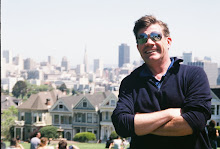MARCH 19 FIVE THINGS TO KNOW ABOUT THE CRIMEAN WAR
With the Second Crimean War in full swing, we here at the DUNER BLOG thought it would be helpful to our readers to review the First Crimean War. Here are five items everyone should know:
1. The Holy Alliance vs. the Great Powers.
In grand European conflicts like the Crimean War, two rival leagues of nations are involved. On one side....we have the Holy Alliance of Russia, Prussia and Austria. Why so holy? In post-Napoleonic Europe, these three nations feared democracy and revolution. Instead, they they tired to steer the continent towards Christian-based autocratic states. One the other side...we have the Great Powers of England, France and Sardinia (Italy). Their goals were simple: They wanted to re-draw Europe's borders in their favor.
2. The Sick Man of Europe.
By 1850, the once-great Ottoman Empire was in serious decline. Greece and Serbia had broken free and other sections would soon follow. This prompted Czar Nicholas of Russia to call Turkey "The Sick Man of Europe," as the Ottomans were unable to maintain a healthy empire. Like Putin today, the Czar wanted to expand Russia westward. Using the proxy excuse of liberating Russian Orthodox pilgrims in the Ottoman-held Holy Land, Russia declared war on Turkey. First, they invaded Crimea. Unfortunately, Nicolas' 'Holy Alliance' did not hold together and Prussia and Austria declared neutrality. Meanwhile, England and France decided to join Turkey's defense.
3. The Charge of the Light Brigade.
The Crimean War is known as the first 'Modern War.' In addition to advanced weaponry, trains brought troops quickly and telegraph lines brought news instantly. One exception was England's 'Light Brigade.' Unlike the 'Heavy Brigade,' which had guns, the 'Light Brigade' was a cavalry armed only with lances and sabers Under curious orders, they bravely and fiercely attacked better armed Russian troops...who thought they were drunk. Of the 660 Brits in the regiment, 118 died, 60 were captured and 335 horses were shot. An allied French general summed it up: "C'est magnifique, mais n'est pas la guerre." (It's magnificent, but it isn't war.) Ten years later, the incident would be immortalized in a famous poem by Alfred Lord Tennyson.
4. Florence Nightingale.
Once upon a time, a wealthy Englishwoman (named after her Italian birthplace) had visions. She dreamed of helping people and logically became a nurse. Decades later, a fellow friend and noble named Sidney Herbert became Secretary of War. He tabbed Florence as a leader and sent her to Crimea to nurse. As an established writer, her letters to the London Times enchanted a nation, giving rise to women's rights. Also important: Ms. Nightingale championed a revolutionary new concept in hospitals: Sanitation.
5. The Peace of Paris.
After the stunning loss at the Battle of Balaclava, Russia sued for peace. The proceedings were conveniently held in Paris and soundly ended in France's favor. Crimea remained Turkish and the Black Sea was declared neutral waters. In reality, Russia signed the treaty and waited. A mere twenty years later, everyone in Europe had forgotten about the Black Sea. After France's defeat to the Prussians, Czar Nicolas fought Turkey again, without any French or British support. This time, Russia successfully annexed the Crimea. Fifty years later, Stalin would ethnically cleanse the peninsula. Crimea has remained solidly Russian ever since...
Tuesday, March 18, 2014
Subscribe to:
Post Comments (Atom)





No comments:
Post a Comment